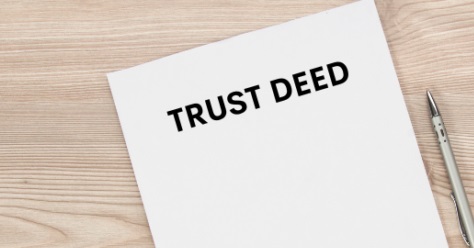
There are several things to consider before establishing a trust arrangement.
As there are many different kinds of trusts, each with different rules and regulations, it is best to be well-informed before deciding which one to establish.
Here at Patricia Holdings, we pride ourselves on providing high-quality trust deeds quickly and efficiently. Before setting up a trust, we think you need to know a few critical things.
1. Types of Trust
In Australia, there are several types of trusts, all with their own features.
The most common type of trust set up by Patricia Holdings is a discretionary trust. Discretionary trusts are characterised by the trustee being able to decide how and when funds will be distributed among the beneficiaries. The trustee’s discretion is the main distinction between a discretionary trust and all other types of trusts.
With unit trusts, the beneficiaries hold “defined entitlements” to the funds in the trust, which are known as “units”. The trustee must distribute funds to beneficiaries in accordance with those units
There are various types of unit trust:
Multi-class unit trusts allow you to allocate different rights and entitlements to different share classes
- Fixed Unit Trusts are designed to remove any flexibility for trustees and are formulated so as to take advantage of Schedule 2F of the Income Tax Assessment Act 1936 (Cth) and the Land Tax Management Act 1956 (NSW) (Land Tax Threshold Concession)
- A self-managed superannuation fund (“SMSF”) allows for the provision of pension funds to its members upon retirement and operates solely for the benefit of its members upon retirement, and
- Bare Trusts operate in tandem with superannuation funds, allowing an SMSF to borrow money to purchase assets such as property, units within a Unit Trust and even artworks. The Bare Trust then holds these items in trust for the SMSF, protecting it from the risks associated with borrowing money.
Once you have decided what kind of deed is best for you, Patricia Holdings can produce it.
2. Nominated Parties
There are a number of parties to trust deeds, and it is useful to outline their roles.
The Trustee
The trustee has an important role in ensuring that the trust complies with its statutory requirements and in making any distributions to beneficiaries that are required by the deed.
A trustee must be at least 18 years old; and must hold some other, less well-defined traits. When appointing a trustee, you will want to have faith that he or she knows what the role involves, and will fulfil the duties in a way that is fair to all beneficiaries. A trustee holds the legal title to all of the trust property, and holds it in trust for the beneficial owners. Therefore, when appointing a trustee, you will want to pick someone who is fiscally responsible, trustworthy and of sound mind.
The Settlor
The settlor’s job is to place the settled sum into the trust bank account upon the trust’s establishment. You will want to appoint someone reliable for this role to ensure that the trust is properly established, with the required funds.
The Appointer
The appointor has the power to remove or appoint a trustee. He or she needs to be someone who will take action if necessary (e.g., if the trustee does not comply with the rules established in the trust deed).
The Beneficiaries or Unitholders
These individuals and/or companies hold the beneficial interest in the trust property. Whilst the trustee holds legal title, the beneficiaries hold the equitable title. This entitles them to benefit from the trust property in accordance with the rules established in the trust deed (e.g., in relation to distribution and payment upon vesting of the trust)
3. Foreign Beneficiaries
Since June 2016, surcharges have been applied to foreign people who own or acquire residential land in NSW. The surcharge is now applied to all discretionary trusts that own or purchase property unless they have excluded foreign persons as beneficiaries. Trustees need to clearly exclude foreign beneficiaries from the trust deeds to avoid this surcharge.
4. Stamp duty
Every Australian state has a Duties Act which governs the duty payable on certain documents (that is, to “stamp” the document), but only three jurisdictions continue to require the stamping of trust deeds—that is, NSW, Victoria, and the Northern Territory. The duty payable on deeds varies across jurisdictions, so we recommend contacting the State Revenue Office where you will stamp your deed for more information. Even if your deed does not attract stamp duty, some deeds must be lodged with the relevant State Revenue Office.
Patricia Holdings is a registered State Revenue Agent for both the NSW and Victorian State Revenue Offices. This means that we can stamp your discretionary and unit trust deeds in these jurisdictions.
In NSW, you can no longer send your deed directly to Revenue NSW for stamping; you must instead send it to one of their agents.
5. Record keeping
Once you have a trust deed, you will need to ensure that you keep up with the legislative requirements in relation to it.
The trustee is generally responsible for keeping accurate and up-to-date records of all changes to the trust deed and any distributions the trustee has made to the beneficiaries. Keeping these records is vital if you ever encounter issues with the deed or the distributions made under it. You can then prove exactly what has been done and when.
A trustee must also keep accounting records, including receipts and expenditures relating to all trust activity. This is so that the trust remains compliant with taxation law.
Keeping good records of your trust deed is also simply a matter of good practice, and Patricia Holdings is ready to assist you to do so.
Patricia Holdings offers a trust secretarial service, and we ensure that our deeds are regularly reviewed for legislative compliance—so you can feel secure in getting a Patricia Holdings deed.



